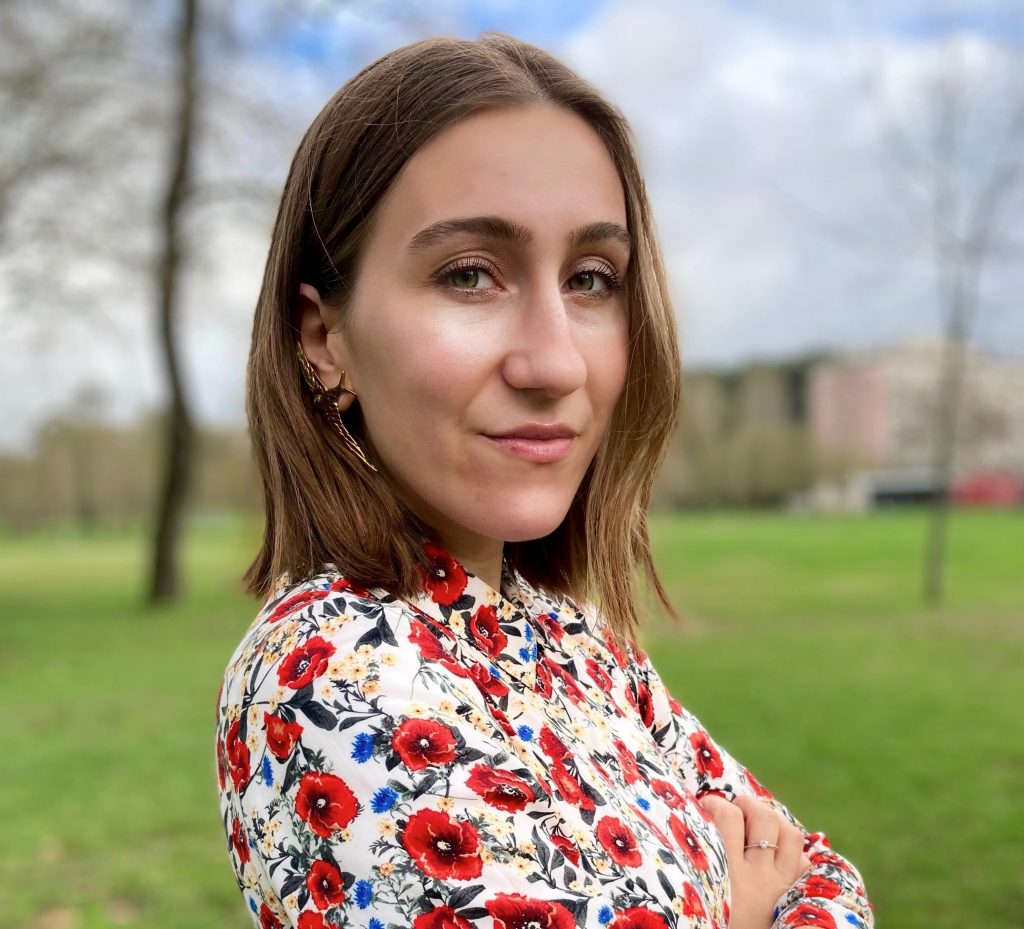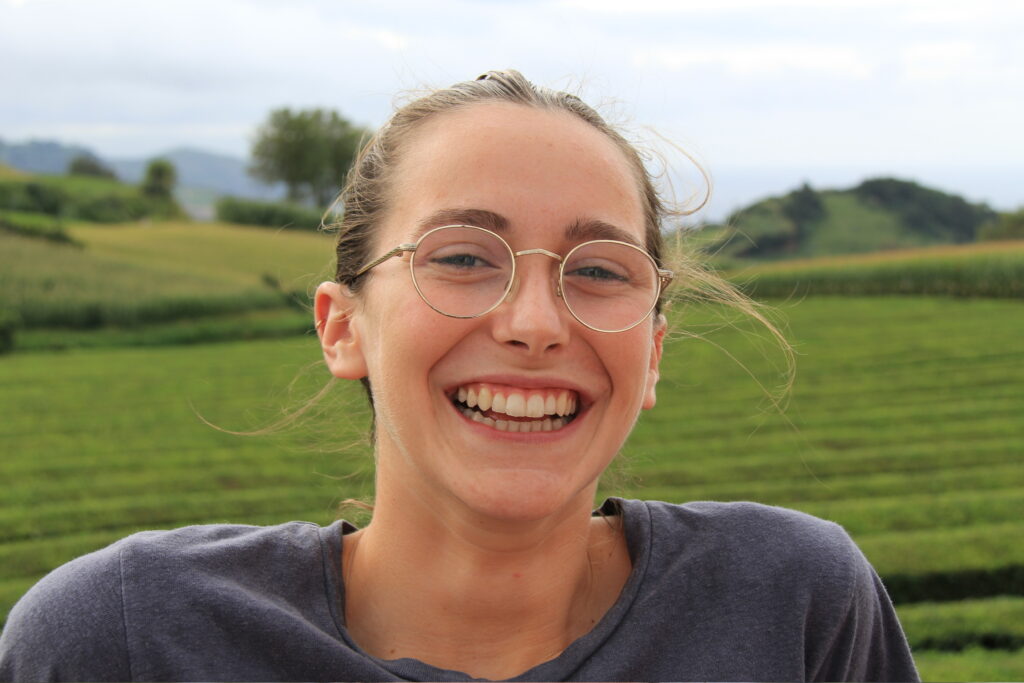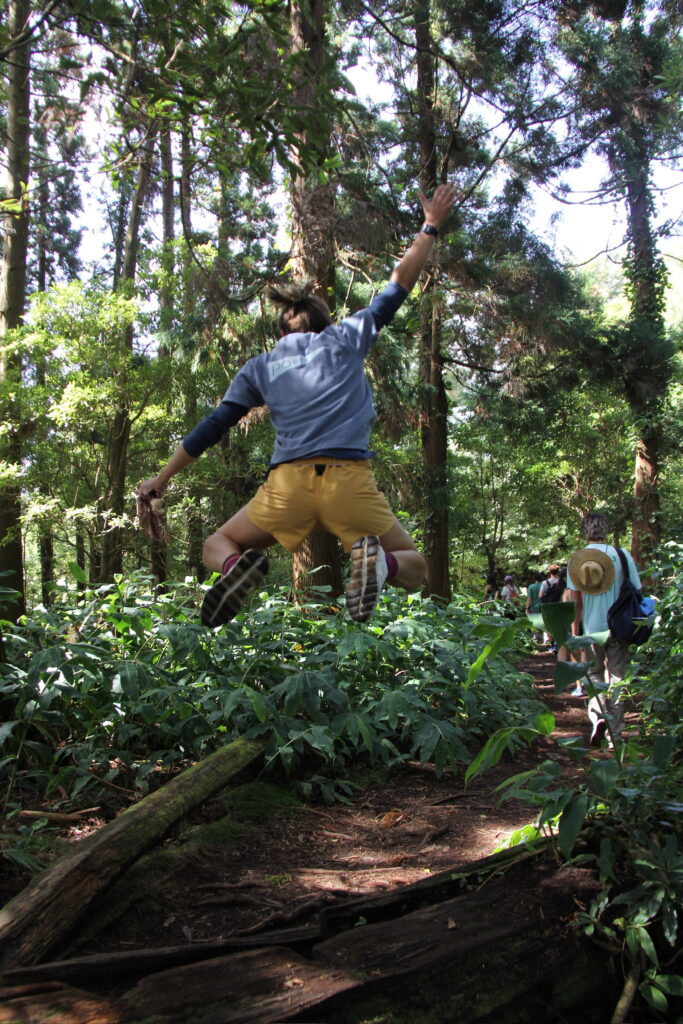From curiosity to action: How students play key roles in Portugal research projects
Strong partnerships help generate innovative solutions
February 20th, 2024 | Research, SIT Study Abroad
By Cátia Magro
SIT Portugal Academic Director

On SIT’s Portugal: Sustainability and Environmental Justice program, our mission is to empower students to be change advocates by involving them in research projects that have a meaningful and lasting impact on communities at home and abroad.
- Read more about SIT Portugal: Sustainability and Environmental Justice
By participating in fieldwork, contributing fresh ideas and perspectives, and collaborating with research teams, study abroad students have the opportunity to apply theory to practice in a variety of research projects.
One example of this collaboration is a research project by Colorado College student Olivia Furman. During her study abroad semester in Portugal, Furman gathered and analyzed data to assess the impact of tourism on municipal waste production and treatment in the Algarve region of Portugal from 2017 to 2023.
“I have had a longtime, surprising fascination with waste characterization and management,” Furman said. In high school, she spent many lunch periods “wearing a neon vest as a compost monitor helping her peers learn how to sort waste for composting. My favorite activity of the Covid lockdown was my near daily walks to our neighborhood scrap-iron and metal sorting plant, where we would watch as big cranes sorted metal scraps.”

Furman says her interest in Independent Study Project (ISP) topic emerged during a group excursion to Valorsul, a waste-sorting plant in Lisbon, where her group witnessed the methods of collecting, sorting, and characterizing municipal solid waste.
“With conversations from that morning’s lesson on urban regeneration and development in mind, and newly gained knowledge on the operations of the waste plant, I became curious as to what variables influence waste generation and characterization in a community,” she said.
As a popular tourist destination, the Algarve region of Portugal attracts millions of visitors annually. This relationship between tourism and waste generation and management practices is crucial to understanding the development sustainable waste management strategies that minimize environmental degradation. This research can also contribute to the creation of fair tourism policies that protect the interests of the local community.
In addition to Furman, the project research team included Dr. Eduardo Cardadeiro, Eng. Joana Dionísio, Dr. Catarina Roseta Palma, and myself, with the cooperation of ALGAR, the waste management company for Algarve.
With conversations from that morning’s lesson on urban regeneration and development in mind, and newly gained knowledge on the operations of the waste plant, I became curious as to what variables influence waste generation and characterization in a community.
Engaging our students in Portuguese research projects not only accelerates project advancement, it also provides them with invaluable practical research experience and a deeper understanding of the subject matter. The success of these projects relies on strong partnerships between study abroad programs, local communities, universities, and stakeholders. Such collaborations facilitate the identification of pressing local issues, tap into community knowledge and expertise, and develop effective strategies for implementing sustainable solutions.
This project exemplifies the strong collaboration between SIT Portugal Sustainability and Environmental Justice and the Research Center for Economic and Business Sciences at Autónoma University, the program’s university partner. Partnerships like this one promote the fusion of diverse expertise, resources, and perspectives to generate innovative and effective solutions.
The anticipated outcomes of the project include enhanced tourism management strategies aimed at reducing adverse effects on local communities and maximizing the positive impact of tourism for residents in the targeted region. Through presentations at conferences and municipalities focusing on effective waste management practices, a longer-term goal is development of a model with applicability to other regions in Portugal, promoting broader sustainability practices.
We look forward to additional partnerships through a new SIT Portugal program, Multimedia Storytelling and Intercultural Communication, which will be launched this fall in collaboration with Autónoma University. Renowned for its communication science courses, Autónoma University boasts cutting-edge television and radio studios, along with state-of-the-art equipment and multiplatform newsrooms that will be made accessible to our students.
The primary objective of this program is to equip students with the necessary skills to become proficient multimedia storytellers, as stories possess the potential to mold knowledge and inspire inquisitiveness regarding crucial subjects.
Through both programs, I am certain that in Lisbon, we will continue to live, learn, and build our stories alongside students as we strive for a sustainable and just world.

Photo courtesy of Brenna Hazen
Cátia Magro is academic director of SIT Portugal. She is an environmental engineer and holds a PhD in environment and sustainability.
